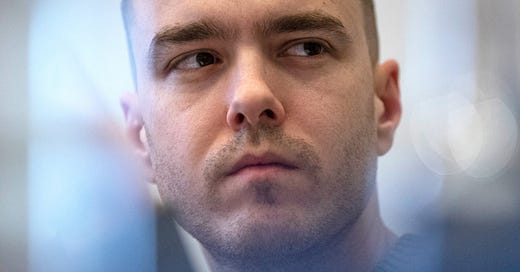Campaigning against domestic abuse
As I welcome you to my new space here on Substack, I offer you an insight into my story so far and what the journey as a male victim of domestic abuse looks like as a feminist ally.
A welcome is a greeting normally offered with courtesy and kindness. Whatever is going on in the world, or in our lives, the simple hospitable invitation offered is not only an act of kindness, it is a foil to any trepidations to those who enter our own spaces.
As you take passage into this new personal space of mine here on Substack, you will find my welcome is a title that is curious, if not discomforting: Campaigning against domestic abuse. I have no foil to disrupt what trepidations you have, in fact I encourage them and I ask you to be curious. My courtesy and kindness is to offer you personal stories and writings on domestic abuse, coercive control and male violence, a perspective that invites you to a space to read something different, from someone different.
I am a 35-year-old man, a child victim of domestic abuse, a male victim of intimate partner abuse, a man who campaigned to free his abused mother from almost a decade in prison (and succeeded!), and a man who battles, greet…
Keep reading with a 7-day free trial
Subscribe to David Challen to keep reading this post and get 7 days of free access to the full post archives.




